A look inside: Dunster House
The goat roast (yes, goat roast)
Of Dunster House’s three major yearly events, those being its “Messiah” sing, the Dunster House opera, and the spring goat roast, it is the tradition of the roast that sets it apart from the other Houses.
The roast, held this year on May 3, started in the 1980s as a lesson in primitive survival and was popularized by Daniel Lieberman, former House tutor and now a professor and chair of human evolutionary biology. The roast calls for students to skin a goat carcass with sharp-edged stones, the way our ancestors did in the Stone Age. The meat is then steeped overnight in a marinade of lime, curry, salt, pepper, fresh herbs (including thyme and oregano), and a bit of garlic. The following day, the meat is suspended on a spit over a bed of coals, and roasted until done.
Years ago, a woman walking along Memorial Drive saw the goat meat displayed in the courtyard, and thought she was witnessing some primitive, sacrificial rite. Cambridge Police were called. Though they confirmed that there was no problem, since then, the roast is discreetly cooked away from the outer gate so as not to alarm anyone.
In addition to the actual roast, students enjoy a smorgasbord that includes hotdogs and hamburgers, corn on the cob, salads, and vegetarian dishes, with watermelons and brownies for dessert.
All this takes place against a backdrop of Frisbee, Wiffle ball, and padded jousting matches, set to music pulsating from outdoor speakers, and framed by cherry trees bursting in bloom. In short, it is Dunster spring revelry in full swing.
Get your goat Jon Chase/Harvard Staff Photographer
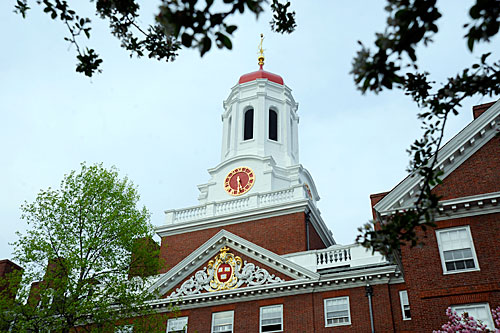
Ivory towers
Oh, what debauchery lies beneath the prestigious-looking Dunster House? Goats, games, pure hedonism!

Where succulence meets decadence
Fun and games with a goat roasting on a spit!
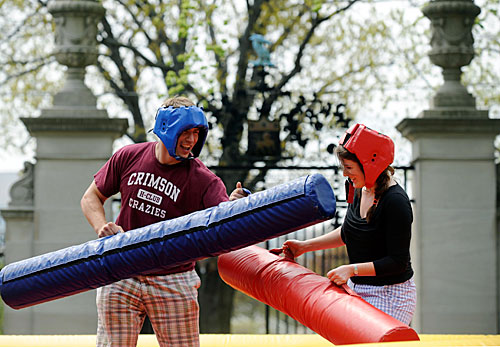
Backyard wars
Rob Tennyson (left) jousts with Courtney Cronin ’11 in the courtyard.
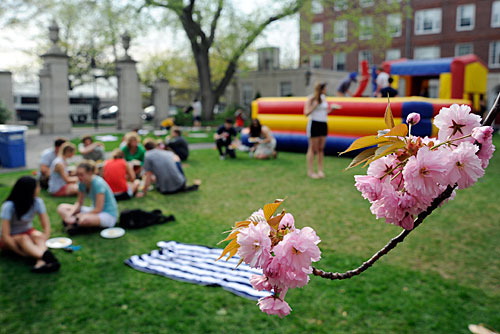
In bloom
Spring is here! Let’s sit on the lawn and devour some goat!
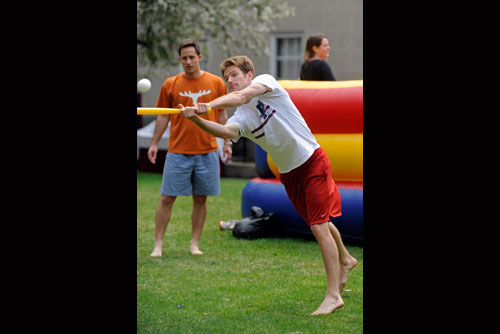
Glory days
Long after the students have left their beloved Dunster House, memories of goat eating and Wiffle ball playing will live forever.
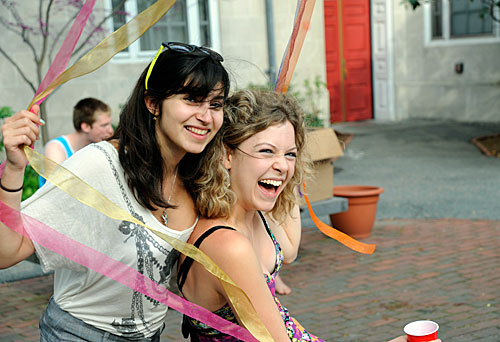
Ribbon dancers
Liora Simozar ’13 (left) and Tess Hellgren ’11 share a laugh.
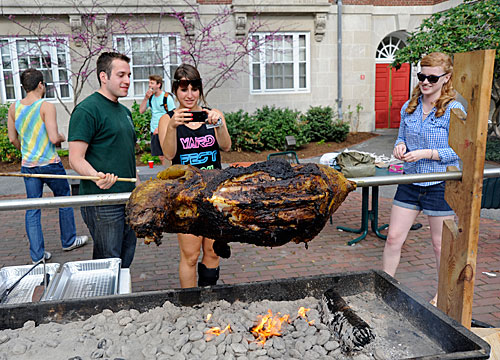
Crispy skin
Students supervise the goat’s slow-roasted progress.
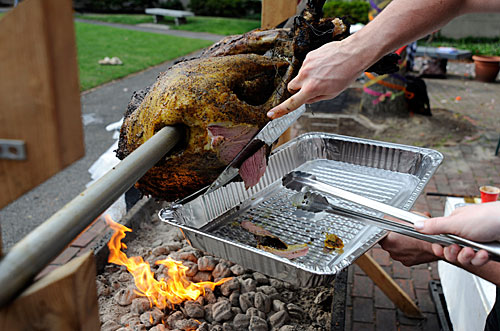
Thin-sliced
Carve the goat!
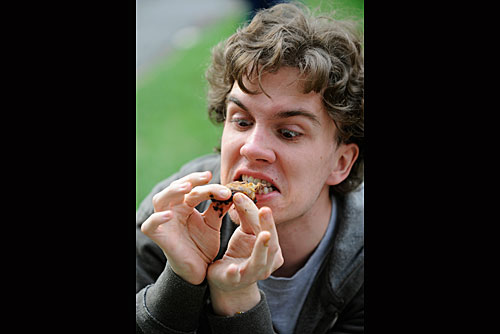
Toothy
Danny Erickson ’14 finds a piece of goat just a little bit chewy.
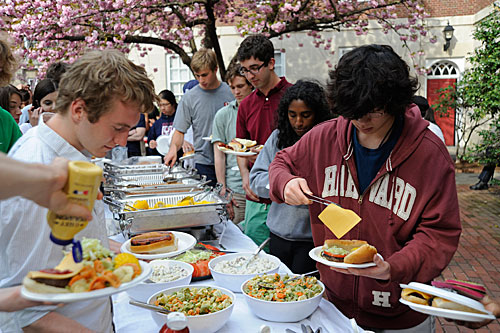
What a feast!
Hungry minds and hungry stomachs.
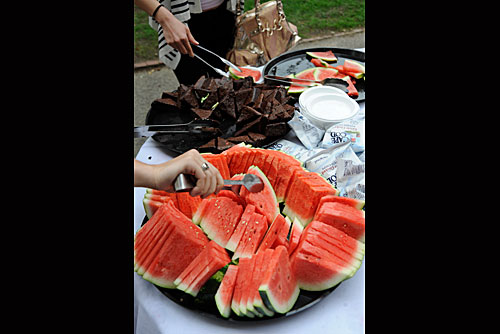
Classic picnic fare
Melon, brownies, and chips, with a side of goat.
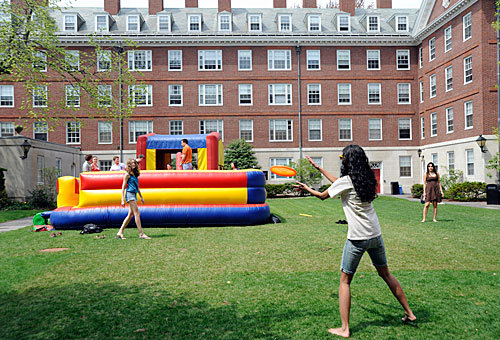
Go long!
Dunster residents toss around a Frisbee.




